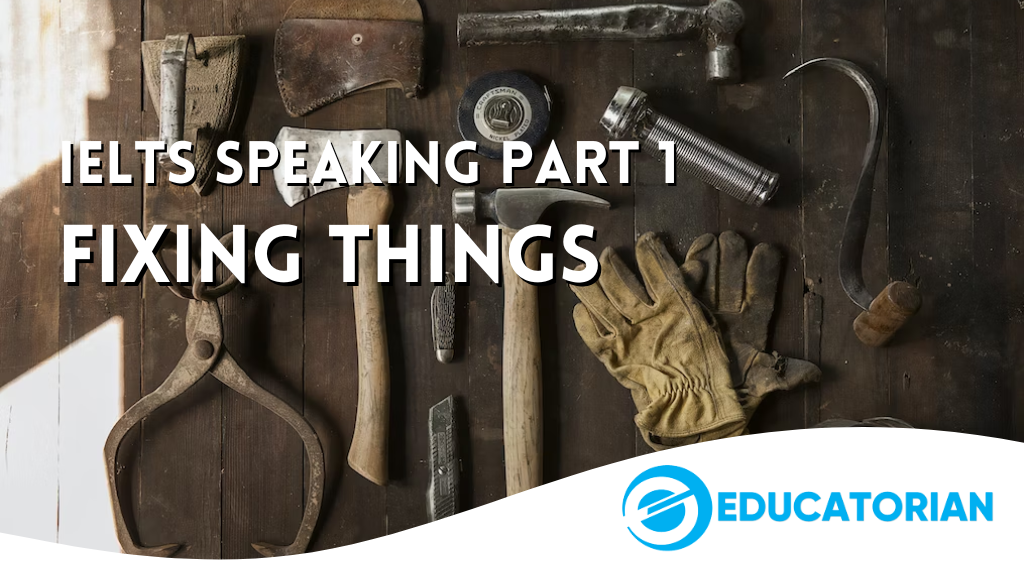
IELTS Speaking Part 1 – Fixing Things
IELTS Speaking Part 1 (Fixing Things)
Topic: Fixing Things
Difficulty: Easy
Can you fix things?
Yes, I can say that I am capable of fixing several things, from basic busted lights to replacing faulty faucets and bidets. I can also repair hinges and doors. When it comes to gadgets, I know how to disassemble and troubleshoot laptops, trying to identify and fix problems. The same applies to computers, although my expertise lies more in software-related fixes rather than hardware. I can handle basic repairs on electric fans and other motor-operated devices. However, unlike professional technicians, I can only offer a service-level fix. I have never attempted soldering or replacing chips, motherboards, or capacitors. If I discover something is broken, I can try to find the parts and perform a basic repair. But I don’t specialize in intricate repairs.
Did anybody teach you to fix things when you were a child?
When I was a child, I was fortunate to live near a repair shop. We didn’t have much to do, so during the afternoons, we would observe the repair shop fixing various items. I remember the repair guy fixing a large CRT TV. I saw him soldering the motherboard, replacing fuses and capacitors. Although I never personally attempted those repairs, I gained theoretical knowledge of how to do them.
Do you think it is necessary for people to learn to fix things?
Yes, I believe it is still necessary for people to learn how to fix things, even though there are easier alternatives like replacement or relying on professional repair services. As an individual, I think it is important to possess the skill of fixing things because not everything in life can be replaced. It is a matter of principle and, in my view, a part of masculinity to be able to fix things, particularly cars. Personally, I haven’t owned a car because I lack expertise in working on engines, and I find it embarrassing to own a car that I can’t fix. Therefore, my philosophy is that if you can’t fix it, you shouldn’t buy it. This is why I believe people should learn how to fix things, as you don’t want to be stranded on the road feeling helpless because you can’t fix or change a tire.
What do you do when something is broken and cannot be fixed?
Well, if something is broken and I have exhausted all proper troubleshooting steps, including attempting to isolate the problem and replacing certain parts without success, I would seek the opinion of another professional. If we both come to the same conclusion, it would be best to replace the item. As for the broken part itself, I usually salvage it. For instance, if it’s a computer that is no longer functioning or has a faulty thermal fan, I would salvage the hard drive and monitor. I would then sell the defective board or processor at a discounted price. This is my approach when something is broken and cannot be repaired.
Check other collections here.
Check my personal website here

Ian Tanpiuco is an ESL and virtual assistant. With a decade of experience, he has become an expert in his field. Dedicated to helping others achieve their goals, Ian works tirelessly in the classroom or as a virtual assistant.

